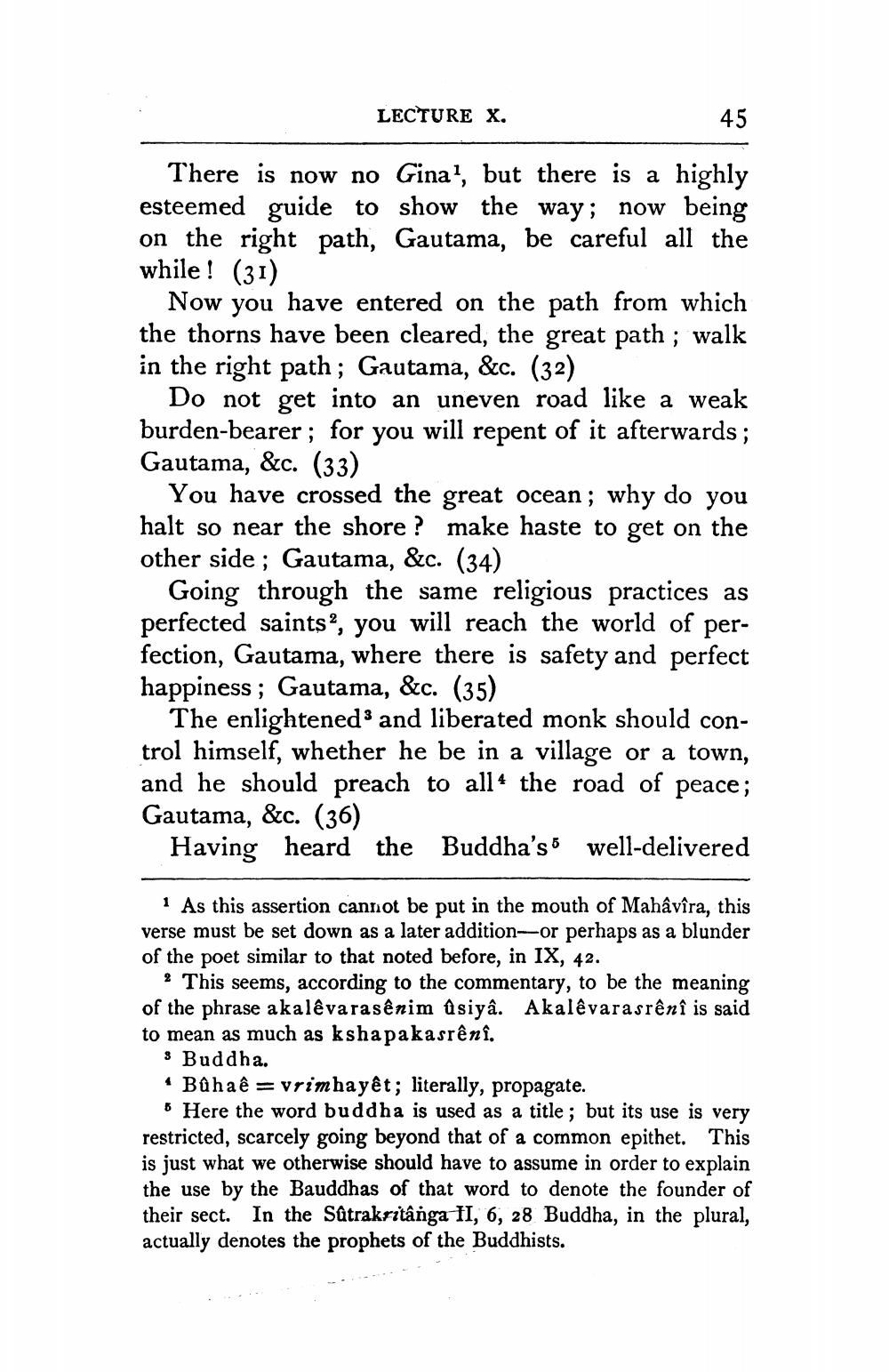________________
LECTURE X.
45
There is now no Gina?, but there is a highly esteemed guide to show the way; now being on the right path, Gautama, be careful all the while! (31)
Now you have entered on the path from which the thorns have been cleared, the great path ; walk in the right path ; Gautama, &c. (32)
Do not get into an uneven road like a weak burden-bearer; for you will repent of it afterwards; Gautama, &c. (33)
You have crossed the great ocean; why do you halt so near the shore ? make haste to get on the other side ; Gautama, &c. (34)
Going through the same religious practices as perfected saints, you will reach the world of perfection, Gautama, where there is safety and perfect happiness; Gautama, &c. (35)
The enlightened and liberated monk should control himself, whether he be in a village or a town, and he should preach to allo the road of peace; Gautama, &c. (36)
Having heard the Buddha's well-delivered
1 As this assertion cannot be put in the mouth of Mahâvîra, this verse must be set down as a later addition or perhaps as a blunder of the poet similar to that noted before, in IX, 42.
% This seems, according to the commentary, to be the meaning of the phrase akalêvarasênim ûsiya. Akalêvara srênî is said to mean as much as ksha pakasrênî.
9 Buddha. * Bahaê= vrimha yet; literally, propagate.
6 Here the word buddha is used as a title ; but its use is very restricted, scarcely going beyond that of a common epithet. This is just what we otherwise should have to assume in order to explain the use by the Bauddhas of that word to denote the founder of their sect. In the Satrakritânga II, 6, 28 Buddha, in the plural, actually denotes the prophets of the Buddhists.




